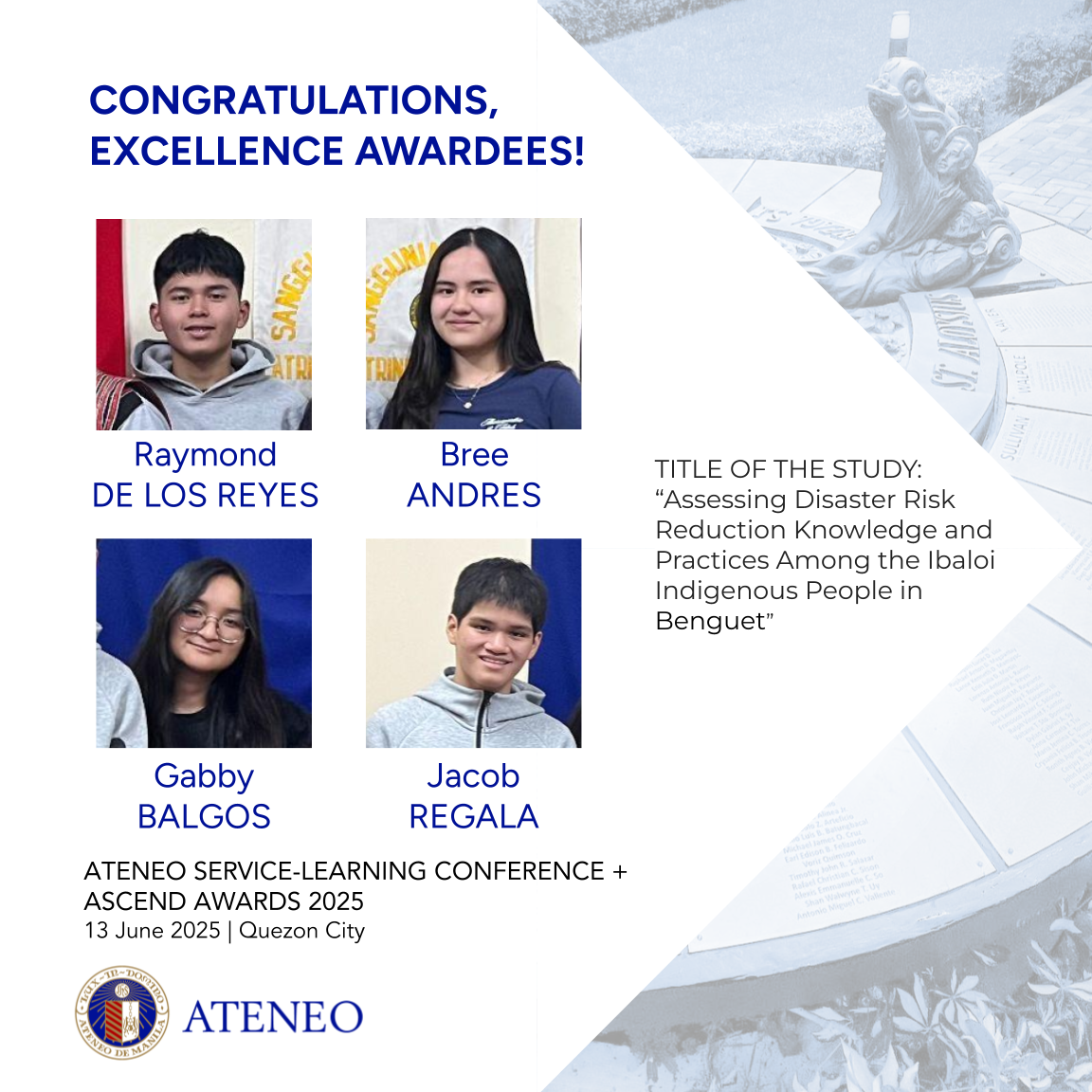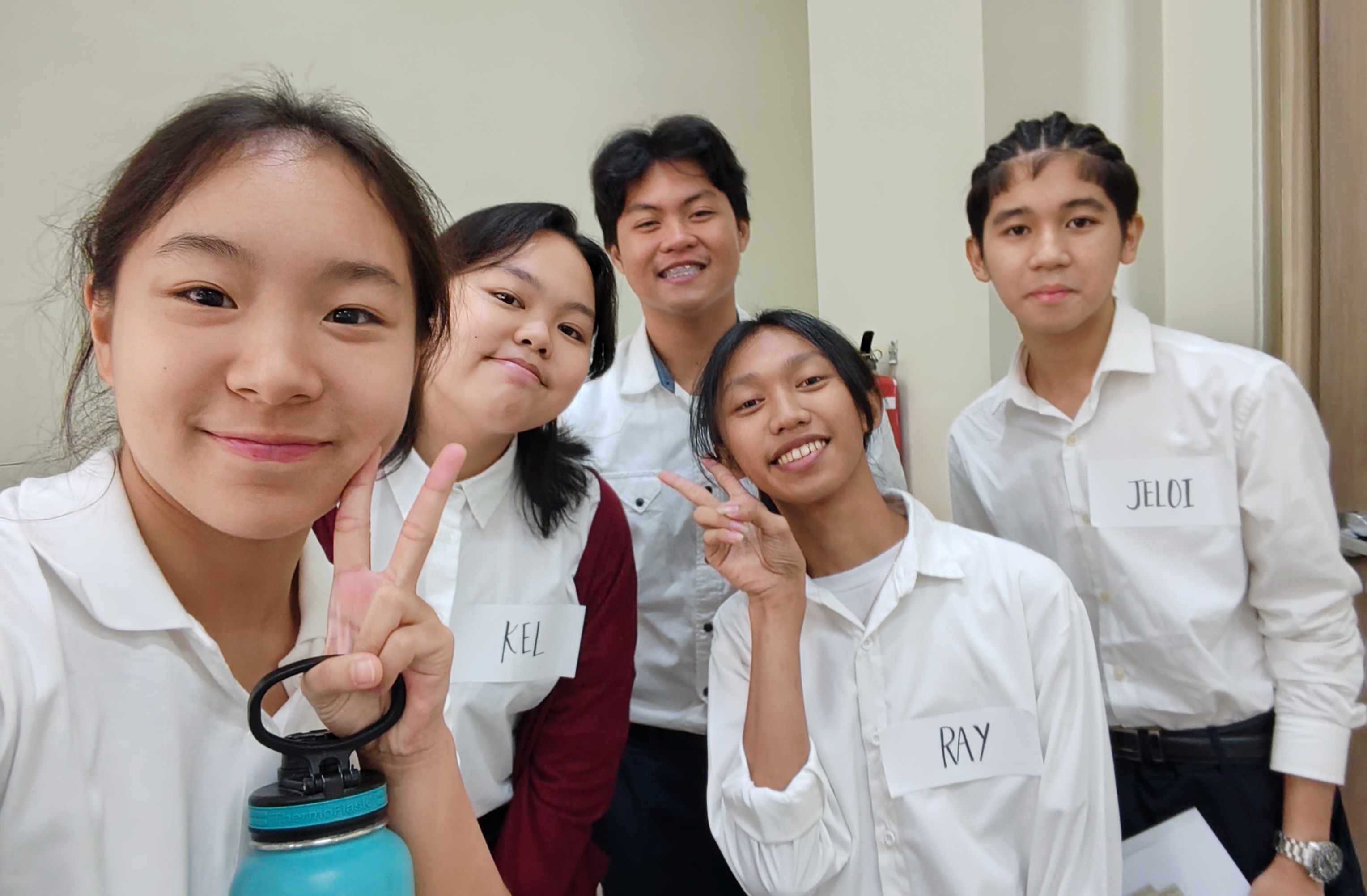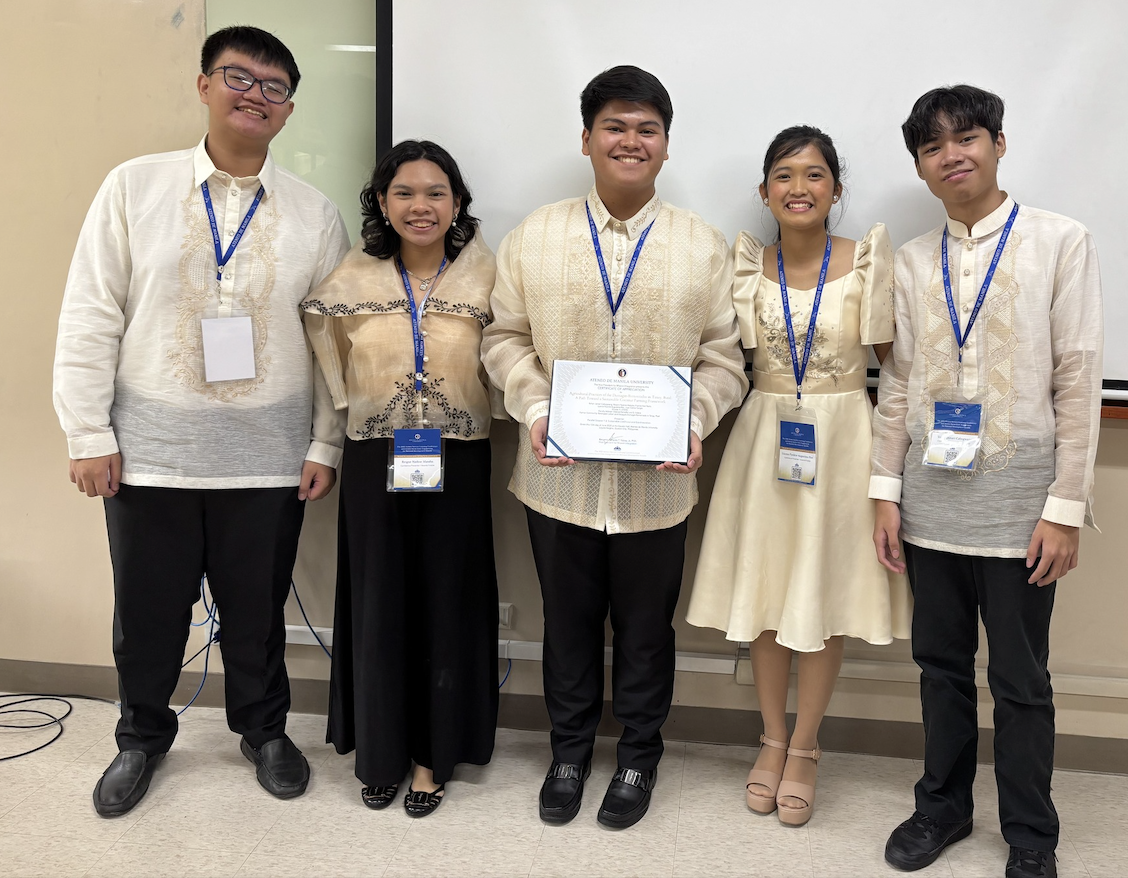ASHS 11-Wright group wins ASCEND Excellence Award for research on disaster risk reduction among Benguet's Ibaloi indigenous people
06 Jul 2025
This year’s Ateneo Socio-Civic Engagement for National Development (ASCEND) Excellence Award for Senior High School Coursework Group Research was awarded to Ateneo de Manila Senior High School (ASHS) 11-Wright students Raymond De los Reyes (principal investigator), Bree Andres, Gabby Balgos, and Jacob Regala for their research titled “Assessing Disaster Risk Reduction Knowledge and Practices Among the Ibaloi Indigenous People in Benguet.” The group was mentored by faculty adviser Mx Gabe Eslava, and their partner community was the Ibaloi Indigenous People in Benguet.

Utilizing an ethnographic approach, the study explores the disaster risk reduction (DRR) knowledge, practices, and perceptions of the Ibaloi Indigenous People (IIP) in La Trinidad, Benguet. The research reveals a complex DRR system grounded in animistic beliefs, ritual practices, and environmental cues used as early warning signals. The study also highlights the IIP’s proactive engagement in local DRR efforts, where traditional knowledge is harmonized with modern methods to develop community-based preparedness strategies. By affirming the relevance and adaptability of indigenous knowledge systems, the research challenges the notion that such systems are inferior to scientific approaches and demonstrates their critical role in enhancing local DRR mechanisms.
The award was presented during the Ateneo Service Learning Conference (ASLC) and ASCEND event held on 13 June 2025 at Escaler Hall, under the theme “Beyond the Common Good, Strive for the Common Good.”

Two other groups from ASHS 11–San Vitores were also named finalists in the same category:
1. “An Ecofeminist Analysis of the Menstrual Experiences of Indigenous Women from the Dumagat Remontado Tribe in Tanay, Rizal” by Kellyn Ramos (principal investigator), Jesse Alberto, Sharlene Go, Antonio Ocampo, and Janray Pascual
This study critiques the stereotype that Indigenous women lack menstrual hygiene due to limited access to modern products—an assumption rooted in marginalization and misinformation. Applying ecofeminist theory, the group examined how Dumagat-Remontado women manage menstrual health through sustainable practices such as reusable cloth pads, herbal remedies, and ancestral knowledge. Conducted through focus group discussions, the study underscores these women’s cultural resilience, environmental consciousness, and ingenuity. By amplifying Indigenous voices, the research challenges mainstream misconceptions and affirms the value of traditional ecological knowledge in fostering sustainable menstrual care.

2. “Agricultural Practices of the Dumagat-Remontados in Tanay, Rizal: A Path Toward a Sustainable Coconut Farming Framework” by Wancy Tongio (principal investigator), Yuri Cabugwang, Reigne Matuba, Francis Nato, and Lia Roc
This qualitative exploratory research documented ancestral coconut farming practices among the Dumagat-Remontado community. Through field visits involving interviews with elders, participant observation, and community-led demonstrations, the team identified key techniques such as mixed-species intercropping, organic amendments, manual pest control based on traditional indicators, and ritualized communal stewardship. Soil moisture and yield measurements validated ecological benefits: ancestral plots showed 25% higher moisture retention and 15% greater yield compared to conventional methods. Community workshops facilitated intergenerational knowledge transfer, culminating in a sustainable coconut farming framework that integrates scientific methods with traditional agroforestry rituals. Endorsed by local cooperatives, the framework supports biodiversity conservation, livelihood diversification, and culturally grounded agricultural development.

The University annually recognizes exceptional student contributions through the ASCEND Excellence Awards. This year, the program honored students from senior high school, undergraduate, and graduate levels across the Loyola Heights campus and the Ateneo School of Medicine and Public Health. The award celebrates projects and research that demonstrate subject mastery and synthetic thinking while making a meaningful impact on communities beyond the Ateneo.
The ASCEND Excellence Award is conferred upon individuals and groups whose work exemplifies all of the following:
- Extraordinary mastery of subject matter and application of synthetic thinking
- Deep and extensive engagement with partner communities and/or institutions
- A strong, strategic and/or creative response to national development concerns with a significant short-term impact on beneficiaries and/or long-term potential for widespread societal benefit
AMDG.




